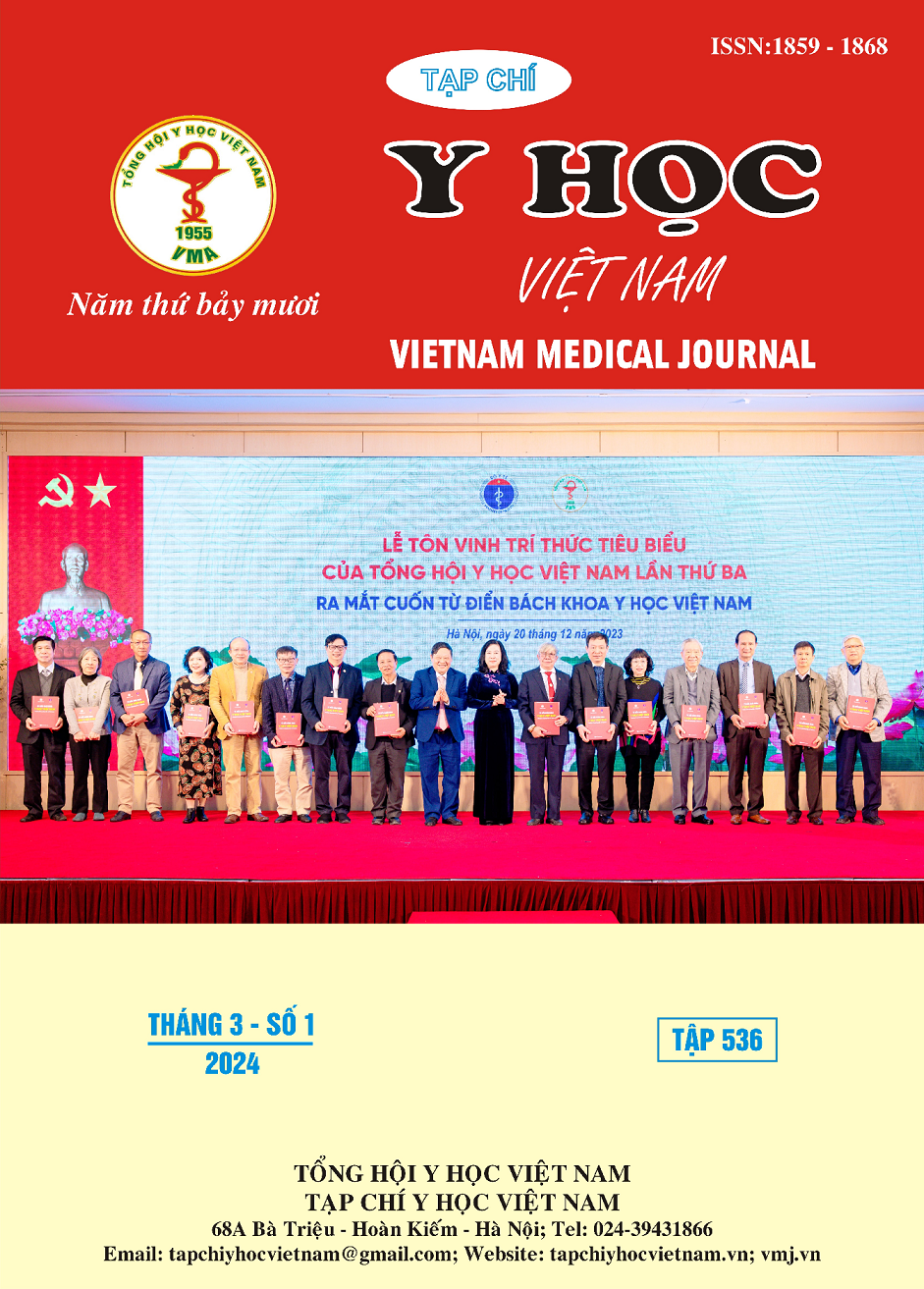COGNITIVE EFFECTIVENESS OF NON-PHARMACOLOGICAL INTERVENTIONS FOR DEMENTIA AMONG ELDERLY
Main Article Content
Abstract
Background: Dementia is a chronic progressive syndrome, that impairing cognitive fields and affects the ability to be autonomous in daily activities. Up to now, no medicine can cure dementia, but can only help slow down the progression of the disease and reduce some symptoms. Besides, pharmacological interventions have many side effects and are expensive, so non-pharmacological treatments for dementia become more urgent. Objectives: Evaluate the effectiveness of non-pharmacological multifactorial intervention in dementia patients. Subjects and methods: Randomized controlled clinical intervention. Subjects include 88 patients diagnosed with very mild, mild, and moderate dementia in Hai Duong from July 2021 to December 2022. Results: High rates of recruitment (97.8%), retention (100%), and completion (100%). The intervention helped improve cognitive function by 0.43 ± 0.32 points while increasing severity by 0.32 ± 0.58 points in the control group. The intervention group improved cognitive memory by 0.52 ± 0.53 points, while the control group decreased by 0.28 ± 0.63 points. Conclusions: Non-pharmacological multifactorial intervention, including physical activity, cognitive training, and listening to educational lectures, shows effectiveness in improving cognitive neurological function, including memory.
Article Details
References
2. Grandmaison, E. and M. Simard, A critical review of memory stimulation programs in Alzheimer's disease. The Journal of neuropsychiatry and clinical neurosciences, 2003. 15(2): p. 130-144.
3. Ngandu, T., et al., A 2 year multidomain intervention of diet, exercise, cognitive training, and vascular risk monitoring versus control to prevent cognitive decline in at-risk elderly people (FINGER): a randomised controlled trial. The Lancet, 2015. 385(9984): p. 2255-2263.
4. Kouzuki, M., et al., A program of exercise, brain training, and lecture to prevent cognitive decline. Annals of clinical and translational neurology, 2020. 7(3): p. 318-328.
5. Nguyen, V.T., et al., Feasibility, reliability, and validity of the Vietnamese version of the Clinical Dementia Rating. Dementia and Geriatric Cognitive Disorders, 2019. 48(5-6): p. 308-316.
6. ClinicalTrials.gov. Effectiveness of Non-pharmacological Interventions for Dementia Among Elderly in Hai Duong Province, Vietnam. 2022; Available from: https://clinicaltrials.gov/ct2/show/NCT05351723.
7. Vancampfort, D., et al., Prevalence and predictors of treatment dropout from physical activity interventions in schizophrenia: a meta-analysis. General hospital psychiatry, 2016. 39: p. 15-23.
8. Castagna, A., et al., The CITIRIVAD study: CITIcoline plus RIVAstigmine in elderly patients affected with dementia study. Clinical drug investigation, 2016. 36: p. 1059-1065.
9. Juniarti, N., et al., The Effect of Exercise and Learning Therapy on Cognitive Functions and Physical Activity of Older People with Dementia in Indonesia. J Aging Res, 2021. 2021: p. 6647029.
10. Cheng, A., et al., Mitochondrial SIRT3 mediates adaptive responses of neurons to exercise and metabolic and excitatory challenges. Cell metabolism, 2016. 23(1): p. 128-142.


